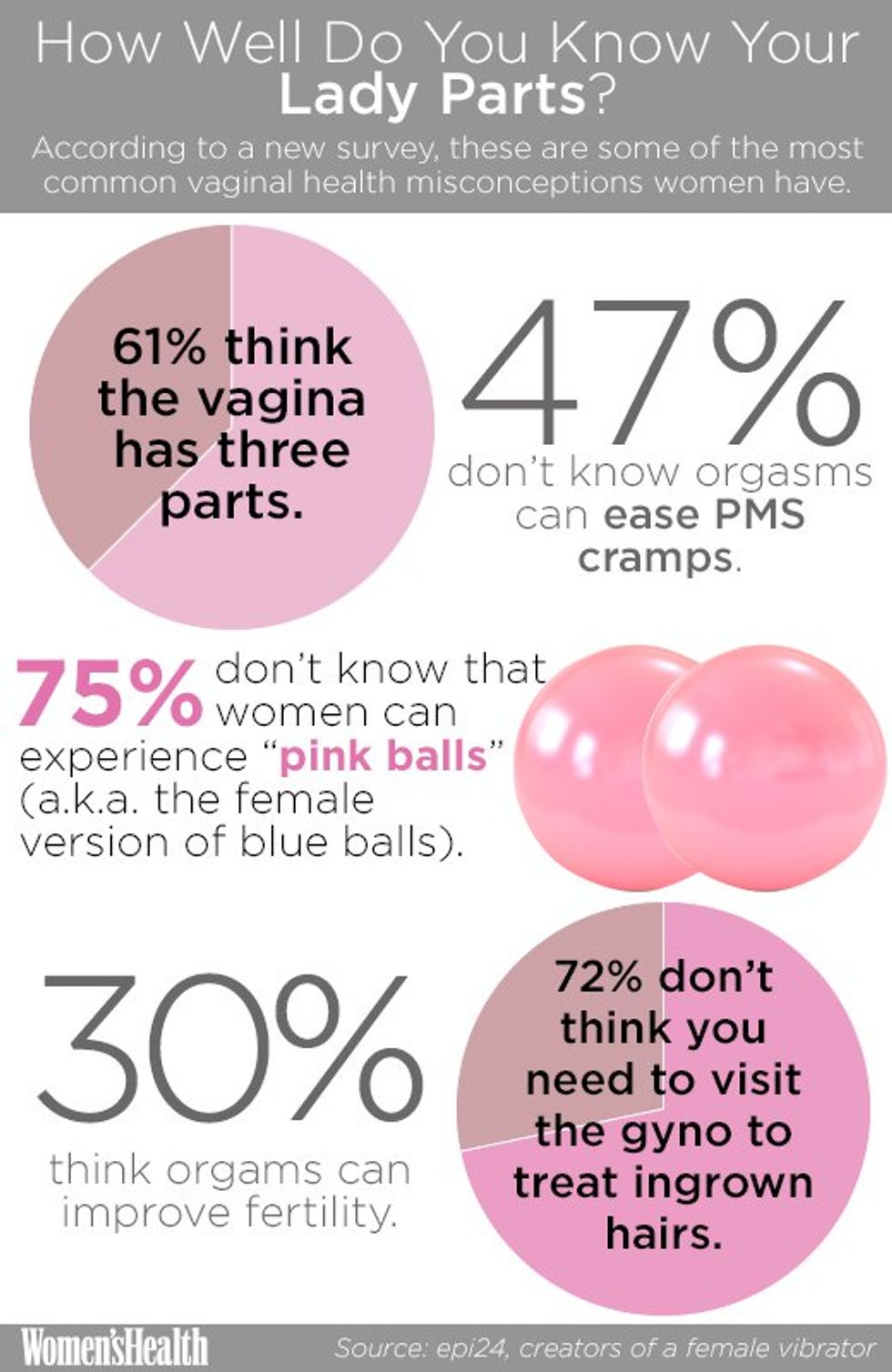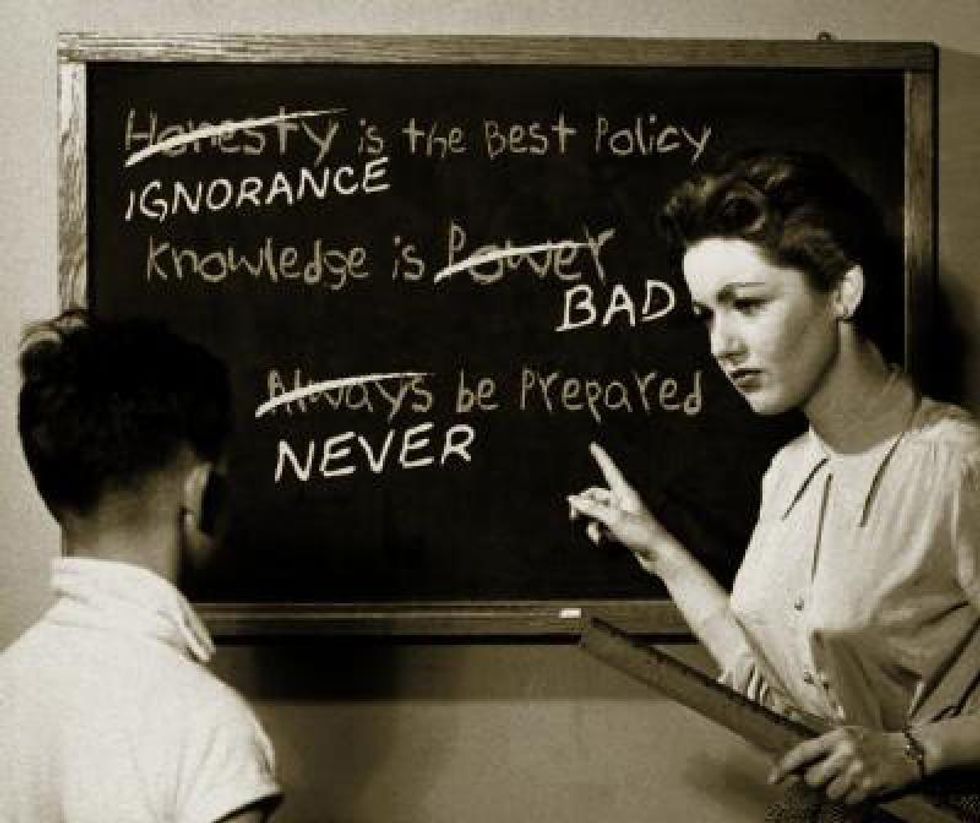Sex education: that awkward, uncomfortable, small section of health class that you had in high school, if you even had it at all. It was likely taght by a clearly uncomfortable gym teacher or school nurse, it likely used fear tactics to scare you out of having sex, and, if you went to school in one of 37 states, it likely wasn’t completely true.
Yep, in 37 states there is no requirement for sex education to be medically or factually accurate.
What the $#&@?
For some reason, policy makers don’t seem to think that accurate, comprehensive sex education is important or necessary. They’re wrong. Sex education affects a lot more than whether teenagers decide to have sex. (And, fun fact: abstinence-only sex education does not reduce the number of teens having sex.)
Sex education can affect a number of different areas in the lives of our young people and adults, and it’s time that we recognize that. Sex education is not just about sex. It's about the general health and safety of our fellow humans. Here is a list of vital parts of the human experience that bad, deceptive, incomplete or nonexistent sex education hurts.
The self-confidence of young people.
Sex education sets the stage for young people's understanding of their own bodies, especially the parts of their body that they are rarely educated about. As students experience puberty in our society, there is a lot of shame, awkwardness and ignorance about one’s own body.
If sex education instructors refuse to call genitals by name or do so with unease, they perpetuate the idea that one’s genitals are gross or shameful.
If educators use slang words instead of medically-accurate words such as penis, vagina, clitoris, etc., they spread the idea that one’s genitals should be joked about or overly sexualized.
If instructors fail to education students about the functions of their genitals, they leave these students scared and confused about their own bodies. When one does not understand their own body, they do not feel in control of it. They do not feel as though they have autonomy.
If teachers do not explain the diversity of our bodies, sexualities and emotions, they promote shame for those who are different from the arbitrarily perceived norm. We need to be educating about premature ejaculation, the diversity of labia shape and size, female ejaculation, and pubic hair.
If educators fail to discuss hormones and attraction, they leave students in fear of their feelings, worried that there’s something wrong with them.
When we provide students with medically accurate facts about their bodies, their sexualities and sex, we give them the knowledge that allows them to understand themselves and make educated decisions about their health.
Students' understanding of healthy relationships.
Sex education is one of the best opportunities to introduce young people to the ideas of consent, healthy relationships and healthy communication. If this opportunity is missed, we are allowing people to enter the world, to enter relationships, to enter other people’s intimate spaces, without the proper knowledge to protect themselves and respect others. Forgoing this opportunity to teach important values and skills increases the likelihood of violence, emotional abuse and sexual assault in the future.
The health of all people.
One of the most important aspects of sex education is the health information that it disseminates. This is why sex education is usually included within high school health classes. I would hope that health educators understand the importance that sexual health information plays in overall health.
Most sex education covers STIs. This is important. However, it is also important that the information presented about these infections is factual and honest. It’s important that prevention is covered, such as condoms, dams, etc. It’s important that stigmas are not laced along, shaming those who have contracted STIs, rather than offering help and solutions.
Sex education also provides a lot of information about general health. People should know not to douche their vaginas. They should know how to clean their testicles. They should know how to care for their bodies throughout the menstrual cycle. They should know what smegma is. They should know about urinary tract infections. Sexuality is so stigmatized that if we don’t teach our citizens about their sexual health in a course dedicated to it, they may not learn until they’ve already damaged their health.
The lives of LGBTQ+ students.
The large majority of sex education fails to mention the existence of LGBTQ+ sexualities or the experiences and health of these people. In fact, only 12 states actually require schools to talk about LGBTQ+ issues, and three of these require that LGBTQ+ people and sexualities are talked about in a negative lens. (Alabama, South Carolina, Texas) That’s messed up.
For one, not hearing their own experiences and feelings reflected in these classes puts LGBTQ+ students at risk of low self-confidence and self-image and poor health. If your existence is not acknowledged, your self-esteem can be shattered. Additionally, when same-sex sex is not mentioned, LGBTQ+ students do not learn how to have safe sex, or really, how to have sex at all. They are thus more likely to engage in risky behavior and more likely to contract STIs. This is not a fault of these students, but a fault of the system that is supposed to support and educate them.
Additionally, the absence of LGBTQ+-inclusive language and topics in sex education classrooms means that heterosexual/cisgender students are not provided with information that can help them better understand and accept their LGBTQ+ peers. This increases intolerance and bullying.
People’s sex lives.
Whether it’s at age 15, on their wedding night or in their 60s, the large majority of people are going to be having sex at some point in their lives. If they are never introduced to it in an academic way – if their only reference points are movies, books, porn or word of mouth – their sexual encounters are likely to be dangerous, painful and unfulfilling. We should be teaching people that the clitoral stimulation is, in many to most cases, more pleasurable than vaginal stimulation for women. We should be teaching people to use lube. We should be teaching people what oral sex is. By teaching these things, if done in a professional and factual manner, we are not encouraging or discouraging people to have sex. Rather, we are encouraging people, whenever in their life they may decide to become sexually active, to have safe, healthy, enjoyable sex.
Not talking about sex or instilling fear about sex does not stop young people from having sex. Study after study has proven this. Rather, it stops young people from having a heathy understanding of sex. It stops young people from understanding and having autonomy over their bodies. It stops education about diversity and acceptance. It hurts health, it hurts self-confidence, it hurts lives.






















